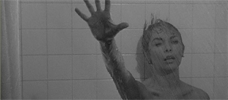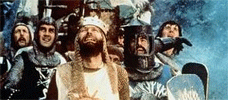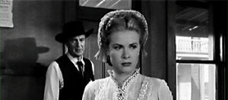Reviews
Andy Wachowski & Larry Wachowski
USA, 1999
Credits
Review by Leo Goldsmith and Adam Balz
Posted on 25 January 2011
Source Warner Brothers DVD
Categories Blind Spots
Unfortunately, no one can be told what the Matrix is. You have to see it for yourself.
Introduction by Adam Balz
During my sophomore year of college, I attended an on-campus screening of The Matrix, which was introduced by two of the university’s best professors. The first spoke eloquently about the very nature of reality, how it is perceived and interpreted, despite its subjective nature. The second spoke about how we are, in actuality, heads in jars; this reality of ours, he argued, is manufactured. It was an interesting debate, one that lasted almost an hour. Unfortunately the scattered members of the audience were more interested in seeing the film for its intense special effects, its gravity-defying action sequences and its violence.
However, it’s that balance between blockbuster-style action sequences and in-depth philosophical undertones that I’ve always admired about The Matrix. Other directors, looking to cash in on the draw of some well-developed special effects - people suspended in the air, bullets tracked in slow motion, the ripple of a skyscraper glass - would have probably given the screenplay a tacky, cliched plot, using it as little more than a vehicle for the effects. Instead, the Wachowski Brothers demonstrated a mature, learned grasp of philosophical ideas and themes, including identity, fate, good versus evil, and what it means to be real. Had the aforementioned effects been toned down or even removed entirely from the film, I have a hunch the film would still have been a deeply suspenseful and greatly entertaining flick. Only it would have cost less, earned very little money at the box office, and won a slew of Oscars for being a “smart” film.
Review by Leo Goldsmith
Mine is not a difficult name to pronounce, and yet when prompted to utter it, I have a tendency to mumble. It’s not that I’m ashamed to articulate it—I like my name. More likely it’s a result of a certain discomfort arising from those disagreeable contexts in which one must stand in front of an officious person and be named. Ordering in fancy coffee bars, telephoning with customer “service” representatives, or settling my affairs at the local police station: these situations obviously inspire some subconscious desire to remain anonymous, and so the name comes out a little garbled.
And, despite its three-letter simplicity, it’s therefore routinely misheard. For a long time, “Neil” was my most common mondegreen—indeed, I saw whole relationships form and fall apart under this pseudo-pseudonym. (I’m not one to correct people.) But about ten years ago, a funny thing happened: people started mishearing my name differently. I would place orders at fancy coffee bars only to hear, moments later from the guy in the cool t-shirt, “Large maple latte for Neo?”
Now, why would anyone be called “Neo”? It’s a ridiculously implausible name, and I don’t even look like a Neo. (Take my word for it.) It is, I would argue, an even more implausible name than Keanu, who of course famously played a character implausibly called Neo in the Wachowski Brothers’ 1999 film, The Matrix. Doubtless, it is this Neo that is called to mind by those officious cops, baristas, and representatives when I mumble my name. Maybe, then, I remind them of Keanu.
The Matrix, which I have been scrupulously avoiding for twelve years for reasons I will divulge later, actually features a lot of characters with implausible names: Morpheus, Trinity, Cipher, Tank, Mouse, Dozer. The dramatis personae reads like the inventory of a Subaru dealership. (A tip: never befriend anyone called “Cipher,” and never buy a car by that name either.) In fact, it is a conceit of the film that the only people with normal names - but, like, what is “normal” inside The Matrix, man? - are stuffy, high-strung computer-generated secret agents who hunt down and kill the people with cool names. There is even a significant moment in the film in which Keanu, while getting the shit kicked out of him by Agent Smith, objects to being identified by his surname. (Smith likes to call him “Mishter Andershon.”) “My name,” he says with a pause that lets you know he’s soon going to turn around and kick Agent Smith’s ass, “is Neo.”
“Anderson,” we are to understand, is Neo’s “slave name,” because Neo, along with the rest of the human race, has been enslaved by computers into a mindless, false existence called you-know-what shortly following the development of AI. (Which prompts the great line, “AI? You mean artificial intelligence?” Yes, Keanu: artificial intelligence.) This dystopic narrative of the fate of human civilization at the hands of malicious and really gross and slithery machines occasions some hinting at some very heavy ideas—beyond even the tenuous and not unproblematic parallel to the enslavement of Africans by white Europeans and North Americans.
The first and most famously pseudophilosophical of these is the idea that reality - sit down; this may shock you - isn’t real. We get this early and bluntly in the film in the form of Jean Baudrillard’s Simulacra and Simulation, a copy of which Neo keeps on his bookshelf. And again later, as Morpheus is blowing Neo’s mind: “Welcome to the desert of the real.” This is some good, zeitgeisty pop-post-modernism, for sure, but even Baudrillard himself called bullshit. The simulacra is not simply something that one can be in or out of; The Matrix, on the other hand, is rather more like Plato’s Cave—a mean trick that can be exposed and, ideally, really awesomely machine-gunned in “bullet time (TM).” (I had to mention it somewhere.) As the pages of Baudrillard’s book have been hollowed out in order to smuggle in some illegal computer programs, one can only assume that the Wachowski Brothers have about the same use for this theory as Neo does.
Still, it’s clear that Žižek is kind of into this shit: he used the quotation about the “desert of the real” to title his essay about the “irreal” (a cooler word for “unreal”) quality of the 2001 attacks on the World Trade Center. But even here, Žižek’s point is about something that both The Matrix and The Matrix want us to forget: capitalism. The Matrix blinds humanity to the exploitation of human energy-farming, and Morpheus explains this point to the slow-witted Chosen One by holding up what is unmistakably a Duracell battery. (As if to say, “Human energy-farming, bad; nickel cadmium energy-farming, good. And also, please buy Duracell batteries.”) But this evades the question of where Morpheus gets his own energy for his fully pimped hovercraft. My guess is that the Duracell product placement worked out really well for him.
Of course, there are lots of really preposterous things about The Matrix, but none of these admitted nitpickings explains why I have so determinedly avoided seeing it for so long. So, why have I been boycotting this movie? Why did I shrug when friends would tell me that it was totally sweet? That Cowboy Curtis was in it and that he played God? That Keanu wasn’t that bad and the chick was hot?
It’s because I thought of it first. Me. It was my idea.
In the early 1990s, I had this amazing concept for a movie about people realizing that “reality” - if you know what I mean - was a computer-generated dream pumped into people’s brains and that when you woke up, Earth kind of sucked, but stuff was futuristic and everyone wore clothing made out of the same color-shifting material featured on Marty McFly’s cap in Back to the Future, Part II.
It was an awesome idea and they stole it. Straight from my mind.
And this is why they keep messing up my name.
More Blind Spots
-

Pee-wee’s Big Adventure
1985 -

The Matrix
1999 -

Amélie
2001 -

The Breakfast Club
1985 -

Psycho
1960 -

Blade Runner
1982 -

Chinatown
1974 -

Monty Python and the Holy Grail
1975 -

Rocky
1976 -

High Noon
1952 -

Ferris Bueller’s Day Off
1986 -

Taxi Driver
1976 -

The Godfather
1972 -

E.T.
1982 -

Pulp Fiction
1994
We don’t do comments anymore, but you may contact us here or find us on Twitter or Facebook.



